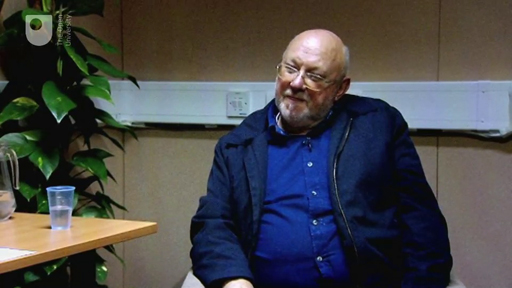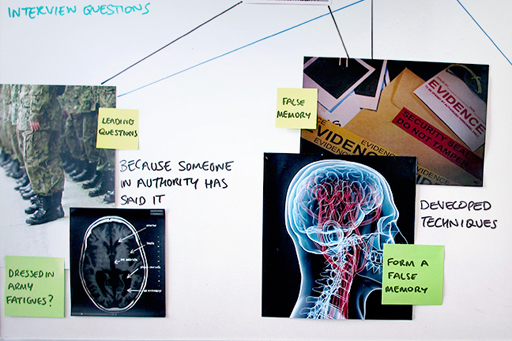2.3 The cognitive interview in practice
In the following video on eyewitness cognitive interview you will see officers from the Greater Manchester Police using elements from the cognitive interview.
The officers are interviewing Eddie, who was a witness to a staged crime involving an attack in a pub. One thing that may strike you as being very different to the types of police interviews you see in crime dramas, is that the officer does very little talking.

Transcript
Psychology research has demonstrated the dangers of asking leading questions and supplying post-event information, which can suggest a response to the witness and even cause them to form a false memory. In addition, research has developed techniques that the police can use to get the most from the memory of an eyewitness, without contaminating their memories. One such interviewing process is known as the cognitive interview.
Next, you will listen to DS Sund interview the two witnesses. When listening to the interview, note down the evidence you think is revealed and evaluate it in light of what you have learned about interview practices and human memory.

